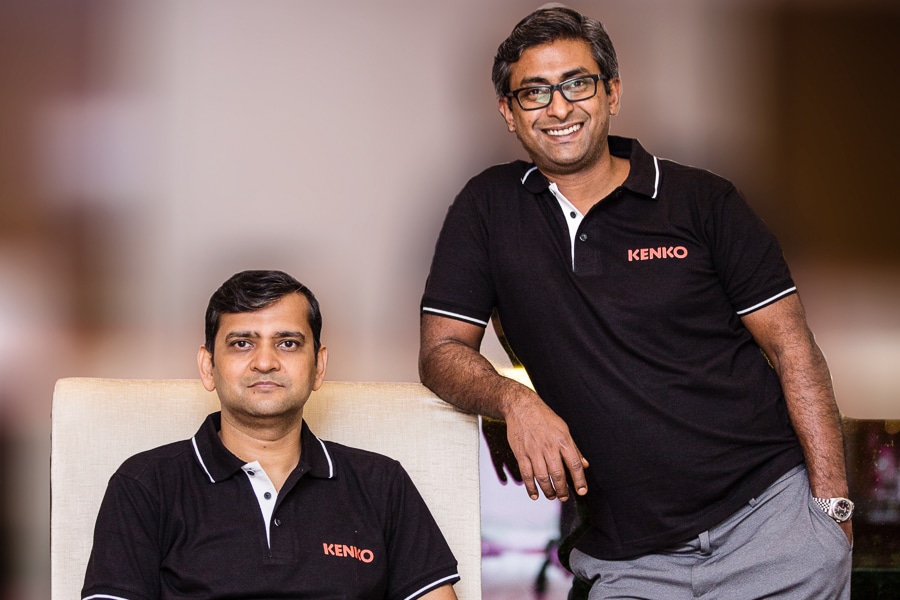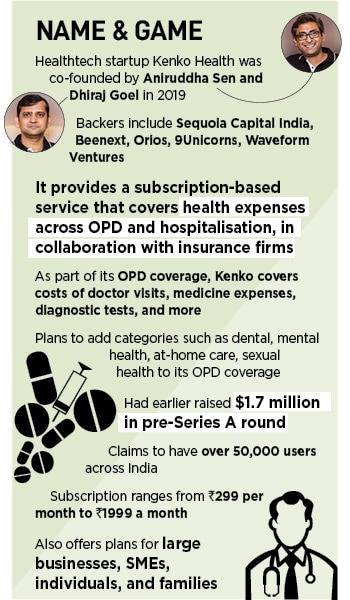
Claim and Acclaim: Can Kenko move the needle with its unique healthcare model?
The health tech startup is changing the lopsided mediclaim narrative in India by looking beyond hospitalisation—and focussing on OPD expenses including doctor visits, medicines and more
 Dhiraj Goel (left) and Aniruddha Sen of Kenko Health
Dhiraj Goel (left) and Aniruddha Sen of Kenko Health
In 2017, Aniruddha Sen had diagnosed the problem. The Indian School of Business alumnus, who had close to two decades of experience across the hospitality and health insurance industries by then, knew his company needed to think out of the box to make healthcare accessible and affordable for the masses. There was one little problem, though. His employer found the prescription ridiculous. “I was laughed out of the room,” he recounts.
Sen’s presentation was junked. “What is this? A Rs 300 subscription rate, and just Rs 30-40 as cost of medicine… this is not worth our type,” was how the seniors dismissed the proposed plan. “We should be talking in crores, hundreds of crores,” was the advice. Sen was not surprised. “It's difficult for traditional people in healthcare to understand the value of niches and small payments,” he rues.
The conventional approach of the insurance industry too didn’t evince much confidence. “We were frustrated with its insensitive outlook and a singular focus on sales, even if it came at the expense of the insured,” says Sen. The insurance companies had reduced the insured to serial numbers and this is evident from the rough treatment meted out to them during claims.
“We wanted to change the robotic and heartless ways of the insurance industry and provide healthcare with a human touch,” he says. There was a pressing need for an evolved and smarter healthcare product that could preserve the best of conventional health insurance and marry it with nuanced healthcare offerings. Well, the problem, and solution, sounded simple.
Two years later, in 2019, when Sen co-founded Kenko Health with Dhiraj Goel, the duo had their reality check moment. Venture capitalists (VCs) couldn’t comprehend the new business model. ‘Even now, the tech investors don't understand the space,” says Sen. In fact, what made the job of the first-time founders difficult was having a business model that looked beyond hospitalisation and talked about covering Outpatient Department (OPD) expenses.




 The first problem was how to pitch the brand story. “Initially, when we approached investors, we too were a little confused as to how to position ourselves,” recounts Sen. The problem was genuine. Pitching Kenko as an insurance and health tech company meant clubbing it in the bucket of
The first problem was how to pitch the brand story. “Initially, when we approached investors, we too were a little confused as to how to position ourselves,” recounts Sen. The problem was genuine. Pitching Kenko as an insurance and health tech company meant clubbing it in the bucket of 






